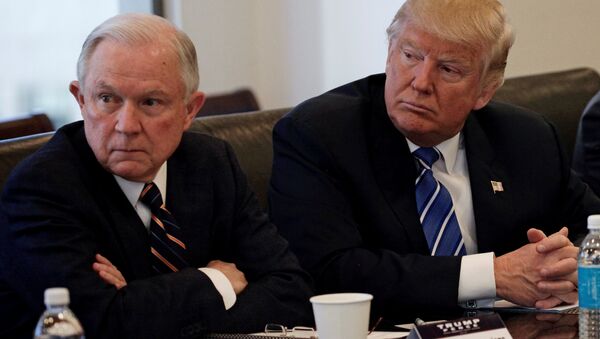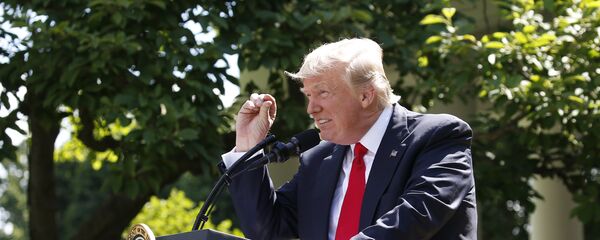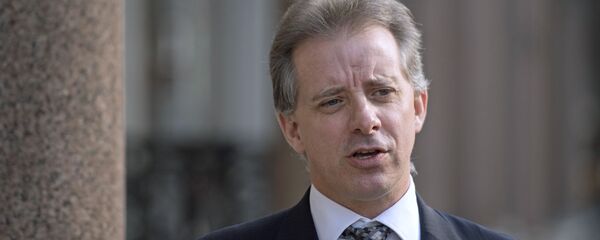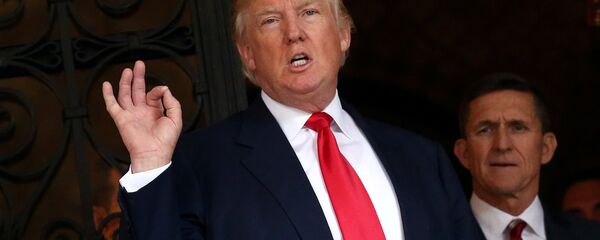But the Times' story was unusual. Sessions recused himself in March 2017, and it has been well reported since May that Trump was infuriated with Sessions as a result. At one point, Sessions even reportedly offered to resign from his post, a resignation that Trump refused to accept.
Brian Becker and John Kiriakou on Radio Sputnik's Loud & Clear were joined by Dan Kovalik, a human rights lawyer who teaches at the University of Pittsburgh School of Law, and Coleen Rowley, an FBI agent-turned-whistleblower who gained her greatest fame for accusing the FBI of mishandling intelligence chatter that could have potentially prevented the 9/11 terrorist attacks.
"My take is that this whole Russia collusion alleged scandal is falling apart, and so the media, including The New York Times, are doing everything they can to keep it alive," said Kovalik. "It was in [May] 2017 that Trump was very open that he didn't think Sessions should recuse himself. Everyone reported on that, so what's the difference if a lawyer went to Sessions and told them he should not recuse himself? It seems to me it'd be worse if Trump had done it himself, but it's old news."
Kiriakou then asked Rowley, who holds a law degree, whether or not Trump's actions constituted obstruction of justice, as the Times article argued it might be. Rowley replied that, while Trump asking Sessions not to recuse himself is "unprecedented," it wasn't obstruction as she understood it.
"If you look back before I retired in 2004, most obstruction of justice matters that I was aware of involved real concrete cases: destroying evidence, tampering with a witness or jury," she explained. "Those were the kinds of cases that people thought of as obstruction of justice. This kind of a thing, where you're to have a president indirectly telling his attorney general not to recuse himself, I think is pretty far-fetched compared to what I was aware of."
"Entrapment has really become in vogue, it's become very popular in Washington. There's also this notion that you can provoke a person to commit obstruction of justice, but there would be an issue: you have to have a real crime in order to obstruct justice. If someone just overreacts — and to be honest, with Trump, it probably is quite easy to get him to overreact — can that actually now constitute obstruction of justice?"
Becker and Kiriakou then discussed the Friday development that Senator Chuck Grassley (R-IA), who chairs the Senate Judiciary Committee, asked the Justice Department to start a criminal investigation into Christopher Steele, the former MI-6 agent who was retained by opposition research firm Fusion GPS to compile the infamous Trump-Russia dossier that is the basis for much of the investigation into Trump.
But Steele compiled the dossier, in part, in collaboration with the FBI, which is part of the Justice Department. In other words, Grassley asked the DOJ to investigate another part of the DOJ. This irony wasn't lost on Kovalik.
"It appears now that our government's main function is for the different branches to investigate each other," he said. "They don't do much else, they don't pass legislation. It is kind of bizarre, and it has become a snake eating its own tail."
"But the question does come back to: where is the [evidence] of Russia collusion? There doesn't seem to be anything significant that's come out in terms of an indictment or a referral on that issue. I think people have to take a step back and ask, what has all this been about? This investigation has now been going on for many months, and it will go on for many more months, and what has been found out?"
Becker pointed out that the convoluted history of the Trump-Russia dossier, originally paid for by conservative opponents of Trump when he was seeking the Republican nomination, then the Democrats and the Hillary Clinton campaign when Trump secured the nomination, and then the FBI, was enough to "make one's eyes glaze over."
"It definitely does,' agreed Rowley. "It's hard to follow. I think that the bottom line is the revolving door wheeling and dealing amongst political officials, retired generals, really the whole establishment in Washington, DC has become so normalized. I'm not a fan of Trump, but you can kind of sympathize just to a small extent with him looking out there and saying, ‘everybody is doing this. Why are you going after me when everyone else is doing this?'"





